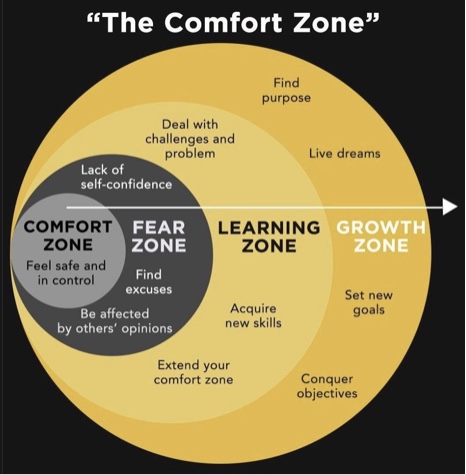“The reason his fights look so easy is because his training was so hard.” – Paraphrased from Joe Rogan when he was talking about Floyd Mayweather.
Train to make the uncomfortable not phase you. If that is your baseline and you’re used to facing obstacles, it will become your new normal. But to someone who hasn’t faced those same difficulties, when they suddenly are thrown into a tough situation, it will be harder for them mentally, physically, and emotionally.
How do you get comfortable with the uncomfortable?
A huge part of it is mental fitness. Mental fitness is more than just being mentally tough. Being tough (or being able to endure) is just one aspect of your mental fitness, but being able to understand concepts, to think outside of the box, to have a good memory. and to be flexible in a changing environment all contribute to being mentally fit.
The other part (the “easier” part) is physical fitness. Again, you want to be physically tough and able to hold up to pressure, but physics fitness also includes strength, endurance, flexibility, mobility, balance, coordination, having a healthy heart and joints, etc.
If you are mentally and physically fit, it will be easier to overcome challenging situations. So what are some things you can do to become fit?
Train your body consistently to lift heavy weights for low reps, to lift light weights for high reps, to sprint short distances at fast speeds, to walk/run/bike long distances at slow speeds, to occasionally work with very little sleep, to occasionally work with very little to eat, to think fast and make quick decisions, to analyze and think slowly, to deal with the heat, to deal with the cold, to read/write/draw, etc. These are just a few examples…
There are so many ways you can train your body and mind at the same time. Do a difficult task daily, one that pushes your existing comfort levels, because the more difficult you make your training, the easier your life will be. If your training is harder than the actual event, you’ll remain strong physically and, more importantly, you’ll remain strong mentally and emotionally. This will give you the edge you need over your competition.
Pain is subjective – it changes based on the perspective of who is going through the experience. Running a mile at a sub 6-minute clip is easy for those who do it consistently, but for the untrained person, this will probably be very painful. What will you do today to increase your fitness and increase your pain threshold?



